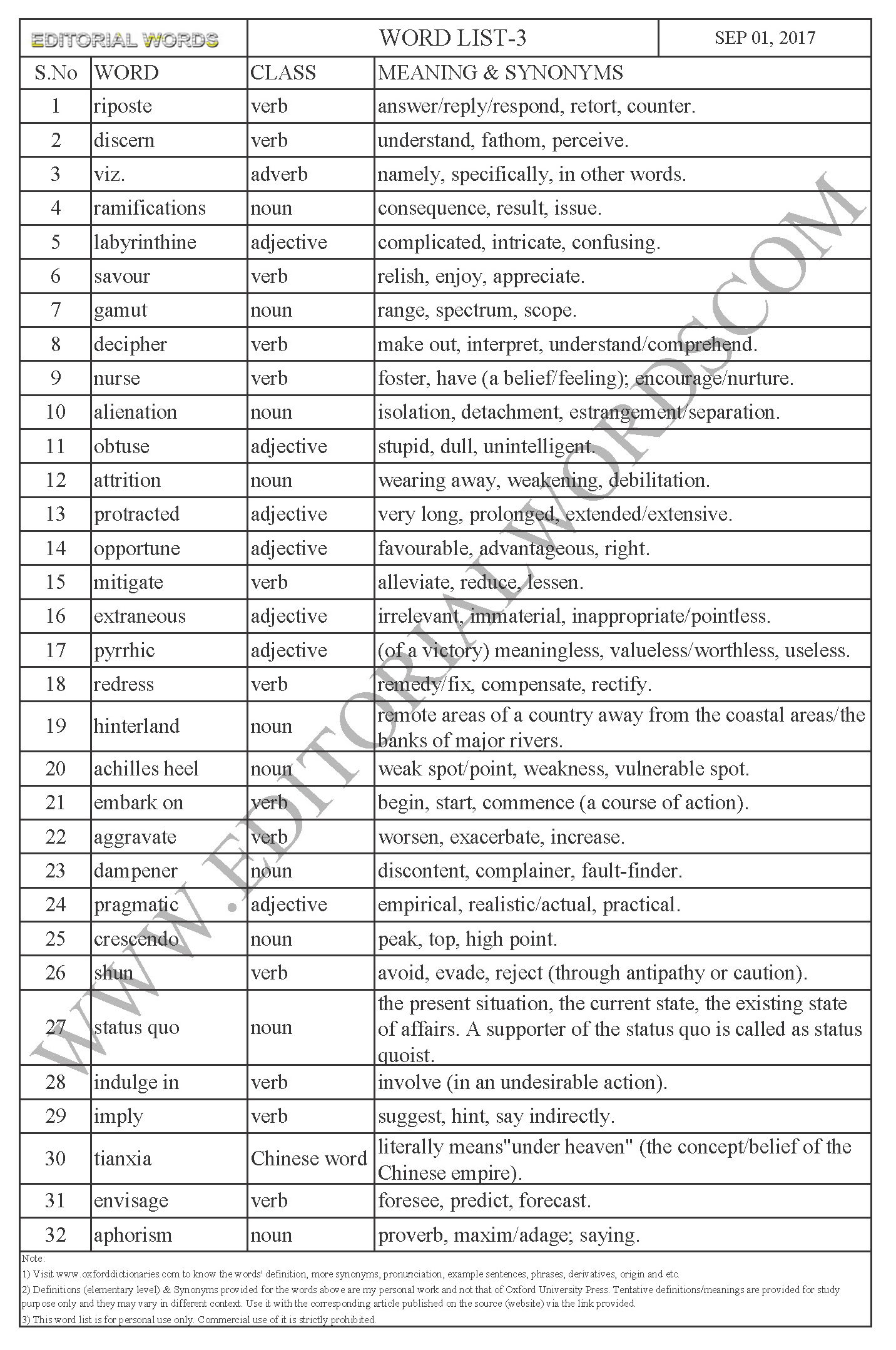Understanding the Chinese mind – The Hindu (Sep 01, 2017)
Just when the stand-off between India and China over the Doklam plateau threatened to go the way of the 1986-1987 Sumdorong Chu incident (Arunachal Pradesh), the two sides agreed to step back and disengage, thus avoiding a confrontation. For further reading, visit “The Hindu”.
This preview is provided here with permission.
Courtesy: The Hindu
Word List-3 (To Improve English Vocabulary)
- riposte (verb) – answer/reply/respond, retort, counter.
- discern (verb) – understand, fathom, perceive.
- viz. (adverb) – namely, specifically, in other words.
- ramifications (noun) – consequence, result, issue.
- labyrinthine (adjective) – complicated, intricate, confusing.
- savour (verb) – relish, enjoy,, appreciate.
- gamut (noun) – range, spectrum, scope.
- decipher (verb) – make out, interpret, understand/comprehend.
- nurse (verb) – foster, have (a belief/feeling); encourage/nurture.
- alienation (noun) – isolation, detachment, estrangement/separation.
- obtuse (adjective) – stupid, dull, unintelligent.
- attrition (noun) – wearing away, weakening, debilitation.
- protracted (adjective) – very long, prolonged, extended/extensive.
- opportune (adjective) – favourable, advantageous, right.
- mitigate (verb) – alleviate, reduce, lessen.
- extraneous (adjective) – irrelevant, immaterial, inappropriate/pointless.
- pyrrhic (adjective) – (of a victory) – meaningless, valueless/worthless, useless.
- redress (verb) – remedy/fix, compensate, rectify.
- hinterland (noun) – remote areas of a country away from the coastal areas/the banks of major rivers.
- achilles heel (noun) – weak spot/point, weakness, vulnerable spot.
- embark on (verb) – begin, start, commence (a course of action).
- aggravate (verb) – worsen, exacerbate, increase.
- dampener (noun) – discontent, complainer, fault-finder.
- pragmatic (adjective) – empirical, realistic/actual, practical.
- crescendo (noun) – peak, top, high point.
- shun (verb) – avoid, evade, reject (through antipathy or caution).
- status quo (noun) – the present situation, the current state, the existing state of affairs. A supporter of the status quo is called as status quoist.
- indulge in (verb) – involve (in an undesirable action).
- imply (verb) – suggest, hint, say indirectly.
- tianxia (Chinese word) – literally means”under heaven” (the concept/belief of the Chinese empire).
- envisage (verb) – foresee, predict, forecast.
- aphorism (noun) – proverb, maxim/adage; saying.
 Note:
Note:
-
Click each one en.oxforddictionaries.com/…ition/foremostof the words above for their definition, more synonyms, pronunciation, example sentences, phrases, derivatives, origin and etc from http://www.oxforddictionaries.com/.
-
Definitions (elementary level) & Synonyms provided for the words above are my personal work and not that of Oxford University Press. Tentative definitions/meanings are provided for study purpose only and they may vary in different context. Use it with the corresponding article published on the source (website) via the link provided.
-
This word list is for personal use only. Reproduction in any format and/or Commercial use of it is/are strictly prohibited.

Be the first to comment